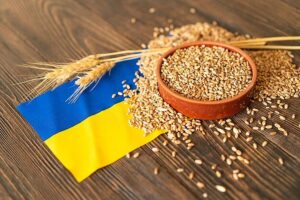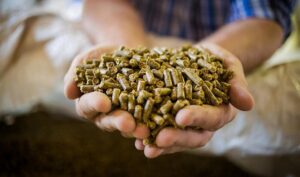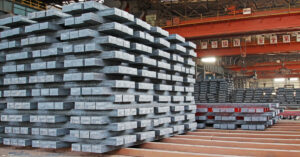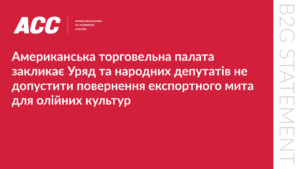
The International Chamber of Commerce (ICC) will hold a roundtable on export finance guarantees as part of the Ukraine Recovery Conference in Rome. This was announced by ICC Secretary General John Denton in an interview.
According to him, one of the main obstacles to investment is the lack of risk insurance coverage.
“We have invited banks, governments, and businesses to address this issue,” he added.
URC2025 will take place on July 10-11, 2025. It will be the fourth Ukraine Recovery Conference, continuing a series of high-level political events dedicated to the rapid recovery and long-term reconstruction of Ukraine.
The ICC (International Chamber of Commerce) is the world’s largest business organization representing the interests of the private sector at the global level. Its headquarters are located in Paris. It has more than 170 member countries and over 45 million companies, entrepreneurs, and business associations worldwide.
Status: has observer status at the UN and works closely with the WTO, G20, IMF, and other international organizations
The ICC develops global standards and rules for doing business (e.g., Incoterms®); resolves international disputes through the ICC International Court of Arbitration, one of the most authoritative arbitration bodies in the world; and promotes free trade, sustainable development, and the digitalization of the economy.
For more details, see the interview at https://interfax.com.ua/news/interview/1082092.html

As of June 20, Ukraine had exported 40.04 million tons of grains and legumes since the beginning of the 2024-2025 marketing year (July-June), of which 1.668 million tons were shipped since the beginning of the current month,
according to the press service of the Ministry of Agrarian Policy and Food, citing data from the State Customs Service.
According to the report, as of June 21 last year, total shipments were estimated at 49.54 million tons, including 2.608 million tons in June.
At the same time, since the beginning of the current season, 15.566 million tons of wheat (18.123 million tons in 2023/2024 MY) have been exported, 2.314 million tons of barley (2.461 million tons), 10.8 thousand tons of rye (1.6 thousand tons), and 21.565 million tons of corn (28.416 million tons). (1.6 thousand tons), and corn – 21.565 million tons (28.416 million tons).
Total exports of Ukrainian flour since the beginning of the season as of June 20 are estimated at 68.7 thousand tons (in 2023/2024 MY – 96.7 thousand tons), including wheat flour – 61.2 thousand tons (91.3 thousand tons).

According to the results of September-May 2024-2025 marketing year, Ukraine exported 2.68 million tons of sunflower meal, which is 29% less than in the same period of the 2023/2024 season and the lowest volume since the 2011/2012 marketing year, according to the information and analytical agency APK-Inform.
Analysts noted that about 49% of total Ukrainian meal exports went to the EU and another 35% to China.
“A total of 1.3 million tons were exported to the EU in the first nine months of the current season, which is 22% less than in the same period last season. Ukrainian products account for 63% of the EU’s total imports of this meal (43% in the previous season), but in addition to fierce competition from soybean meal, they are also being squeezed by Argentine sunflower meal, whose share has grown to 28% (20% in the previous marketing year),” the experts explained.
According to their information, exports of Ukrainian sunflower meal to China during the same period decreased by 25% and amounted to 944 thousand tons. On the Chinese market, Ukrainian products account for about 60% of total imports in September-April of the current season (71% in September-April of the 2023/24 season). Russian meal accounted for up to 27% of total imports during the same period, compared to 9% in the previous marketing year.
At the same time, shipments of sunflower meal from Kazakhstan to China increased almost fivefold, and its share in China’s imports is about 5%, APK-Inform summarized.

Ukrzaliznytsia (UZ) has revised the average daily speed of its freight rolling stock, increasing it by an average of 38%, according to the company’s press service.
“Ukrzaliznytsia has revised the average daily speed of its own freight rolling stock, which will make the use of the company’s cars much more profitable for customers. Carriers will spend less time on transportation and, therefore, pay less for the use of cars,” the company said in a statement on Thursday.
According to the company’s statement, the revised speed standards cover the following types of rolling stock owned by Ukrzaliznytsia: grain cars; tank cars; covered cars; cement cars; converted specialized rolling stock; container and fitting platforms. The new values came into effect on June 16 and will remain in force until December 31, 2025.
For fitting platforms, new speed limits have been set at the following levels: domestic and import transportation: wagon/container dispatch – 170 km/day (previously: 154 km/day); route or container trains – 197 km/day (previously: 154 km/day). For exports via land border crossings: wagon/container shipments – 213 km/day (previously: 139 km/day); route or container trains – 213 km/day (previously: 139 km/day). Transportation to port stations: wagon/container dispatch – 182 km/day (previously: 156 km/day); route or container trains – 264 km/day (previously: 156 km/day).
The updated speed indicators were established based on a detailed analysis of the actual movement of cars in the first half of 2025. In particular, it was found that for a number of types of rolling stock, the actual average daily speed significantly exceeds the current standards, according to the report.
“For rolling stock, the speed will increase by an average of 38%. This will allow shippers to deliver cargo in fewer days using Ukrzaliznytsia cars, which will directly reduce logistics costs and promote the development of container transportation both within Ukraine and to other countries,” Ukrzaliznytsia said.
The company’s CEO, Oleksandr Pertsovsky, noted that the significant acceleration of freight traffic standards will make orders for UZ cars more attractive to customers even in the current surplus market, as well as provide advantages in competition with private operators, which have recently dominated the market.

The business community, united by the American Chamber of Commerce in Ukraine (the Chamber), is concerned about the potential risks associated with the possible return to the practice of imposing export duties and/or quotas on oilseeds.
The duty-free trade regime with the European Union (EU), which is the main buyer of Ukrainian oilseeds, is a guarantee of Ukraine’s rapid and successful recovery. At the same time, the introduction of customs or other trade restrictions by Ukraine could jeopardize negotiations on the renewal of the free trade area with the EU, in particular due to the risk of mirror restrictions on Ukrainian exports.
In addition, experts from the Chamber’s member companies consider it necessary to recall that the experience of introducing export duties on soybeans and rapeseed in 2017, which were subsequently abolished in 2020, showed that such measures do not lead to a significant increase in oil production. Instead, such restrictions cause financial losses for agricultural producers and lead to a corresponding reduction in oilseed crops.
Therefore, the Chamber calls on the Government and members of parliament not to allow the reintroduction of export duties and/or quotas on oilseeds and not to support such initiatives.
Source: https://interfax.com.ua/news/press-release/1080636.html

Ukraine exported 99,300 tons of bioethanol in 2024, with private producers accounting for 62% of this export, and three private bioethanol plants accounting for 38,100 tons According to Nina Yuzhanina, a member of the Verkhovna Rada Committee on Finance, Tax and Customs Policy, the key factors for the development of bioethanol production in Ukraine were the replacement of Russian methanol with Ukrainian bioethanol by oil and gas companies.
She noted that of the 17 bioethanol plants operating in Ukraine, with a production capacity of over 420,000 tons per year, 12 have been privatized in recent years.
According to her, the key factors for the development of bioethanol production in Ukraine were the replacement of Russian methanol with Ukrainian bioethanol by oil and gas companies; the supply of consolidated batches of bioethanol (min. 10,000 tons) to the EU market; logistical features of bioethanol exports by tankers to EU oil refineries with return delivery of gasoline to Ukraine; the abolition of quotas on bioethanol exports to the EU (as of today, the quota of 100,000 tons of ethyl alcohol per year has already been restored) and the introduction of a mandatory 5% bioethanol blend in gasoline in Ukraine.
The MP also criticized the government for failing to protect foreign markets for one of Ukraine’s most promising processing industries.
As reported, the European Commission has approved quotas for Ukrainian agricultural products, which will be in effect from June 6 until the end of 2025 as part of the Deep and Comprehensive Free Trade Area Agreement. According to a document published on the EU website, by the end of 2025, Ukraine will be able to supply the EU market under the Deep and Comprehensive Free Trade Area in a 7/12 month regime (7 out of 12 months of the year) with wheat, flour, and meslin – 583,330 tons , corn – 379,167 thousand tons, barley – 204,167 thousand tons, poultry meat – 52,511 thousand tons, beef – 7 thousand tons, eggs – 3,500 tons, milk and cream – 5,833 tons, dry milk – 2,917 tons, butter – 1,750 tons.
In 2024, Ukraine exhausted its quota for bioethanol supplies to EU markets, which amounted to 100,000 tons per year, for the first time since signing the Association Agreement with the EU. Under the updated terms of 7/12, Ukrainian producers will be able to supply 58,000 tons of bioethanol to the EU market by the end of 2025.